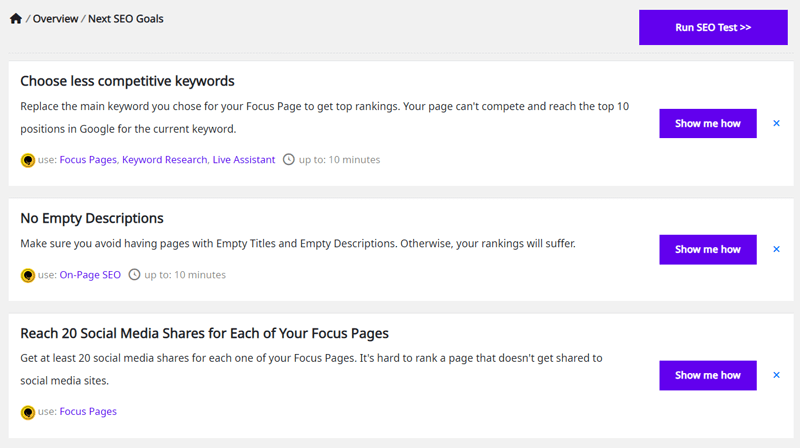In the ever-evolving landscape of digital marketing, the fusion of technology and strategy has always been a game-changer. But as we delve deeper into the era of artificial intelligence, one can’t help but marvel at the ways how machine learning improves SEO.
It’s not just about optimizing for keywords or building backlinks anymore.
The game has changed, and for those willing to embrace the power of machine learning, the SEO field is ripe with opportunities.
Imagine having a crystal ball that not only predicts the future of search trends but also adapts your content strategy in real-time to match those trends.
That’s the kind of advantage machine learning brings to the table.
It’s like having a super-smart assistant who knows the ins and outs of Google’s algorithms better than anyone else. But how exactly does machine learning elevate SEO?
Let’s dive into the specifics and uncover the transformative power of AI in search engine optimization.

How Machine Learning Improves SEO
1. Enhanced Keyword Optimization and Content Creation
One of the core ways in which machine learning can improve Search Engine Optimization is through the revolutionized process of keyword optimization and content creation.
Traditional keyword research methods are becoming obsolete as machine learning algorithms can analyze search data with incredible accuracy, predicting shifts in user behavior and identifying emerging trends before they become mainstream.
This predictive capability allows for the creation of content that’s not just relevant today but will remain valuable and searchable in the future.
Machine learning doesn’t stop at keyword research.
It extends to content creation, where AI tools can suggest content structures, formats, and even topics that are more likely to resonate with your target audience.
These tools analyze top-performing content across the web to understand what makes it successful, from readability scores to engagement metrics. By leveraging these insights, content creators can produce material that’s not only SEO-friendly but also genuinely engaging for readers.
Moreover, AI-driven content optimization tools can offer real-time suggestions for improving readability, enhancing keyword integration without keyword stuffing, and optimizing meta tags to improve click-through rates.
The result is content that’s not only optimized for search engines but also crafted to meet the evolving preferences of users.
2. Personalized User Experiences
The second pillar of how machine learning improves SEO lies in personalizing user experiences.
Machine learning algorithms excel at analyzing vast amounts of data from website interactions to social media behavior, enabling marketers to deliver highly personalized content and recommendations to users.
This level of personalization significantly improves user engagement, which is a key ranking factor for search engines.
Imagine visiting a website and finding content, product recommendations, and offers that are perfectly aligned with your interests and previous online behavior.
This is what machine learning enables – a tailored browsing experience that keeps users engaged longer and encourages them to return.
Search engines, particularly Google, favor websites that provide an excellent user experience, as evidenced by lower bounce rates and higher time on site metrics.
Furthermore, machine learning can optimize website design and navigation based on user behavior patterns, ensuring that visitors can find what they’re looking for with minimal effort.
This not only enhances the user experience but also signals to search engines that your website is a valuable resource, potentially boosting your rankings.

3. Predictive Analysis and Strategic Decision-Making
The next strategic advantage brought by machine learning in SEO revolves around predictive analysis.
By harnessing the power of AI, marketers can forecast future trends, user behaviors, and even potential algorithm changes by search engines. This foresight enables businesses to stay ahead of the curve, adapting their strategies proactively rather than reactively.
Predictive analysis through machine learning involves sifting through historical data to identify patterns and trends that are likely to recur. This can relate to seasonal search trends, the rising popularity of certain topics, or shifts in consumer preferences.
By understanding these patterns, businesses can create content strategies that capitalize on future trends, securing a competitive edge in search rankings.
Moreover, machine learning tools can evaluate the potential SEO impact of various strategies, from link-building campaigns to site restructuring efforts. This allows marketers to allocate their resources more effectively, focusing on initiatives that are most likely to yield significant SEO benefits.
4. Real-Time SEO Auditing and Adaptation
The dynamic nature of SEO requires constant vigilance and the ability to adapt strategies in real-time, a challenge that machine learning is uniquely equipped to meet.
How machine learning improves SEO is not just about predicting the future or personalizing experiences; it’s also about providing immediate insights and adjustments to optimize website performance continually.
This real-time auditing capability of machine learning tools represents a significant shift in how SEO professionals approach optimization.
Traditionally, SEO audits have been time-consuming tasks that provide a snapshot of a website’s performance at a specific point in time. However, with machine learning, this process can transformed into an ongoing activity.
AI-powered tools could continuously crawl a website, similar to how search engine bots do, identifying issues as they arise, from broken links and slow-loading pages to under-optimized content.
This means that instead of periodic audits, websites are constantly being evaluated and improved.

Moreover, these tools don’t just identify problems; they can also suggest solutions. For instance, if a page is loading slowly, the tool might identify large, unoptimized images as the culprit and recommend resizing or compression.
Similarly, if a piece of content is underperforming, machine learning algorithms could analyze it in the context of current search trends and suggest modifications to keywords, meta tags, or even the content structure to enhance its visibility and engagement.
This real-time adaptation is crucial in an environment where search algorithms are constantly evolving. Google, for example, updates its algorithms thousands of times a year, and what worked yesterday might not work tomorrow.
Machine learning tools can detect shifts in search engine behavior and adjust SEO strategies accordingly, ensuring that websites remain competitive in the SERPs (Search Engine Results Pages).
Additionally, this continuous auditing process helps businesses prioritize SEO tasks by highlighting issues that have the most significant impact on performance. This not only improves efficiency but also ensures that efforts are focused on areas that will provide the most significant return on investment.
The ability to quickly adapt and optimize based on real-time data is a game-changer, making SEO more responsive and effective than ever before.
Squirrly Machine Learning (SML)
A notable example of how machine learning improves SEO is Squirrly’s SML technology, which has been instrumental in optimizing over 600,000 websites.
Squirrly Machine Learning (SML) leverages the collective intelligence gleaned from vast amounts of data, including user tweaks and improvements across these websites, to identify patterns that lead to ranking progress and increased organic traffic.

This innovative system can now offer personalized predictions on your website’s chances of ranking success.
Squirrly SML excels in identifying critical issues and errors that could be hindering your site’s SEO performance, offering high-priority, actionable goals tailored specifically to your site and its pages.
It’s like receiving bespoke advice from a top-tier SEO consultant.
Whether you’re a small business owner or a seasoned marketing professional, SML stands out as an invaluable tool for enhancing your online presence, providing deep insights and guidance to help optimize your website and boost organic traffic through its comprehensive data analysis and machine learning capabilities.

Now You Know
The synergy between machine learning and SEO is transforming the digital marketing landscape.
By embracing AI-driven strategies, businesses can enhance their content creation, personalize user experiences, and make informed decisions based on predictive analysis.
The result is not just improved search engine rankings but a more engaging and valuable online presence.
Ready to unlock the secrets of using AI in your business and take your SEO strategy to the next level?
Follow @ai_explains_ai on Instagram for cutting-edge insights and tips on leveraging machine learning for digital marketing success.
Join us on this exciting journey into the future of SEO and watch your business soar.













